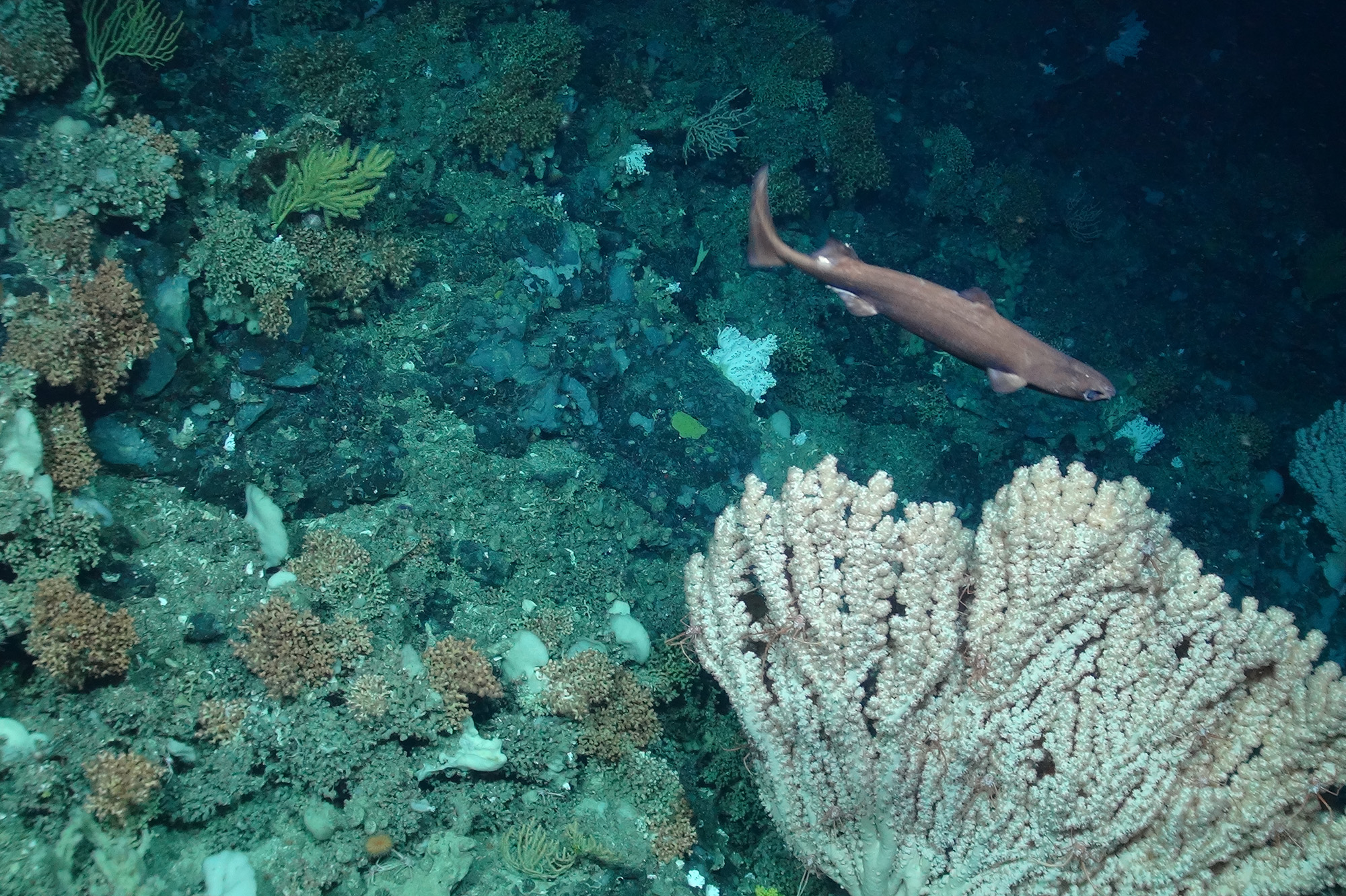Story
Concerns for deep sea ecosystems heighten as US moves to ramp up mining
25 April 2025
The Deep Sea Conservation Coalition is calling for deep sea mining to be ceased

Image caption: Courtesy of the NERC funded Deep Links Project – Plymouth University, Oxford University, BGS, JNCC
In the same week as the US Government moved to accelerate offshore mining and open new opportunities for mineral extraction, as reported by Bloomberg, a new expert reflection paper co-authored by PML Honorary Fellow Torsten Thiele, urges the International Seabed Authority to declare a moratorium / precautionary pause on such activity.
The paper titled: ‘Delivering Benefits to Humankind: Opportunities for the International Seabed Authority under a Deep-Sea Mining Moratorium’ has been published by the Deep Sea Conservation Coalition (DSCC) and explores the “critical opportunities available to the International Seabed Authority (ISA) and the world under a moratorium or precautionary pause on deep-sea mining”.
The DSCC was founded in 2004 – initially in response to bottom-trawling – and now works with scientists, NGOs, intergovernmental organisations, and governments around the world to drive action to protect the deep sea.
Torsten Thiele, Founder of The Global Ocean Trust, co-authored Chapter Four of the paper, ‘Economics of a Deep-Sea Mining Moratorium’, alongside Ussif Rashid Sumaila, Professor of Ocean and Fisheries Economics at the University of British Columbia.
“The ecosystem of the deep sea is a critical part of earth systems and is of vast value. Yet the ocean is already in crisis – overfished, polluted, and heating at an alarming rate – pushing coastal communities and economies to the brink. Human activities can have significant environmental impacts that degrade these systems [Norse et al., 2012]; adding deep-sea mining to this burden would only accelerate these losses, destroying ecosystems before we even understand their full value. A precautionary pause offers the best way forward for nature to heal.”
[Extract of Chapter 4 – Economics of a Deep-Sea Mining Moratorium: Delivering Benefits to Humankind: Opportunities for the International Seabed Authority under a Deep-Sea Mining Moratorium: Expert Reflections Paper]
Torsten commented:
“The value of the deep sea floor ecosystems is immense. The ISA has an important role to play in safeguarding this blue natural capital and managing exploration.”
Kerry Howell, Professor of Deep-Sea Ecology at PML, who is pioneering the use of advances in AI to identify deep sea marine life, added:
“New technologies are enabling a far greater understanding of the deep ocean but there is still much to be discovered and understood. The Deep Ocean plays a vital role in our planet’s climate system, supporting unique habitats and species as well as acting as a carbon sink. It is vital these regions are managed sensitively as there is much at stake.”
Extract of Executive Summary:
‘Humanity is facing a triple planetary crisis of climate change, loss of biodiversity, and pollution. The ocean – including the largely unknown and understudied deep sea – is not only suffering unprecedented deterioration to its health and productivity, it is also key to addressing these existential threats. In the midst of this planetary emergency, the International Seabed Authority (ISA) stands at a critical juncture. Will it continue with business as-usual, pursuing a pathway towards opening up the deep sea to exploitation for short-term profit, causing irreversible long-term damage? Or, will it ensure that deep sea activities truly benefit humankind while protecting the marine environment for current and future generations?
This collection of four Expert Reflection Papers presents a vision of what the world – and the ISA – could look like under a moratorium or precautionary pause on deep-sea mining. Without the constant threat of this destructive new industry being unleashed on our fragile deep ocean ecosystems looming over every meeting, the ISA could deliver immense long-term benefits to humanity. As the first paper in this collection explains, a moratorium or precautionary pause is not only fully compatible with the ISA’s mandate, it would allow the ISA to become an invaluable steward of the deep sea and help advance the recently adopted Agreement under the United Nations Convention on the Law of the Sea (UNCLOS) on the Conservation and Sustainable Use of Marine Biological Diversity of Areas beyond National Jurisdiction (BBNJ Agreement).’
[Extract of Executive Summary: Delivering Benefits to Humankind: Opportunities for the International Seabed Authority under a Deep-Sea Mining Moratorium: Expert Reflections Paper]
